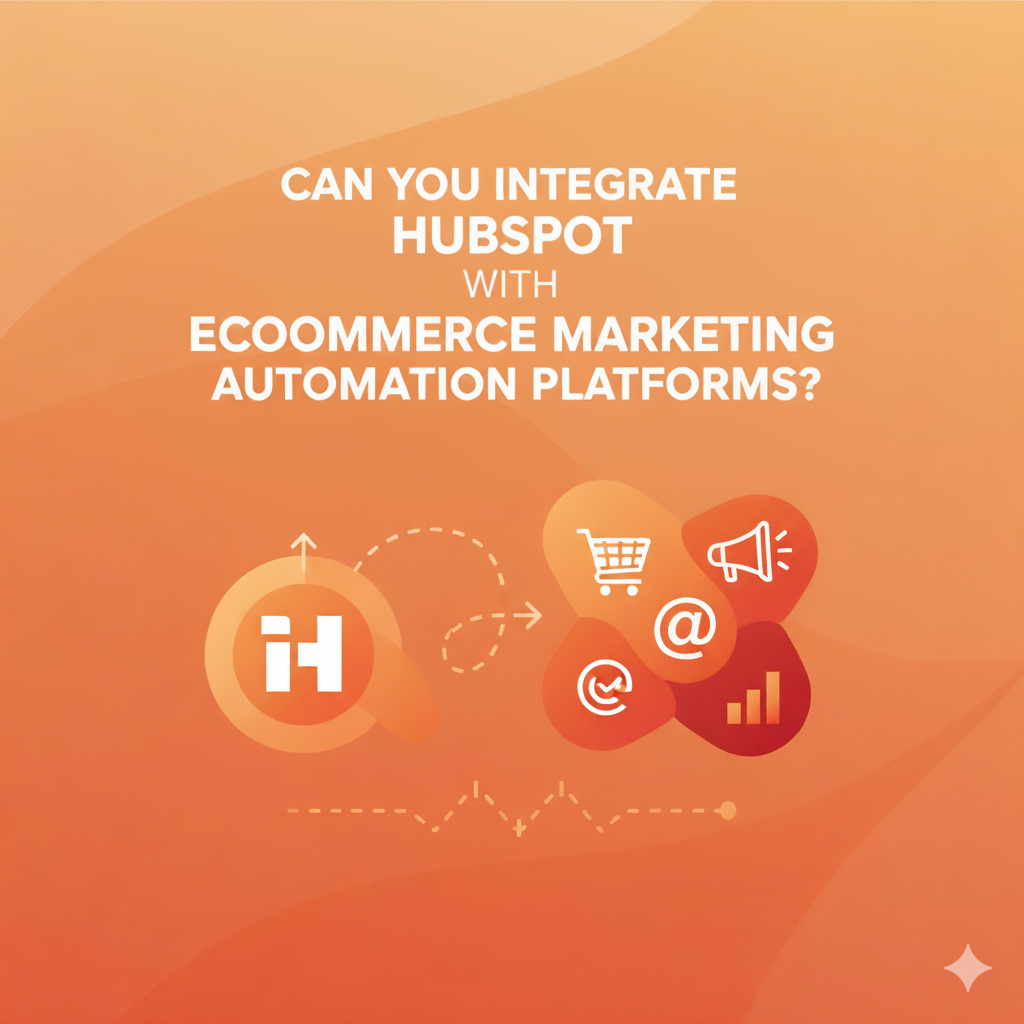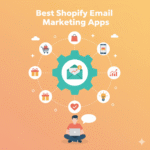Yes, HubSpot integrates smoothly with almost every major eCommerce marketing automation platform — Shopify, WooCommerce, Klaviyo, Mailchimp, Zapier-based tools, and even custom-built systems.
With the right setup, you can sync customers, orders, carts, product data, automation workflows, and even revenue attribution directly inside HubSpot.
Now let’s go deeper and break this down clearly.
Why HubSpot Works Great With eCommerce Marketing
HubSpot is basically a marketing, CRM, and automation hub.
So when you connect it to your eCommerce stack, you instantly get:
- All customer + order data in one place
- Better targeting and automation
- Smarter segmentation and personalization
- Unified reporting and ROI tracking
- Ability to run omnichannel campaigns
For any online store, this becomes a huge advantage because you stop managing 10 tools individually — everything gets connected through HubSpot.
Popular eCommerce Platforms That Integrate With HubSpot
Shopify + HubSpot Integration
Shopify and HubSpot have a native integration, which means:
- Products automatically sync
- Orders sync in real-time
- UTM sales tracking gets accurate
- abandoned carts sync
- Customer profiles merge with CRM
After syncing, you can run workflows like:
“If user abandons cart → send HubSpot email workflow → retarget → track revenue.”
WooCommerce + HubSpot Integration
HubSpot provides a dedicated WooCommerce plugin, which lets you:
- Sync orders, customers, and carts
- Trigger automated emails
- Create smart lists (repeat buyers, VIP customers, high AOV customers)
- Track revenue inside HubSpot
For WooCommerce users, HubSpot becomes a strong alternative to tools like Mailchimp and Klaviyo.
Magento / Adobe Commerce + HubSpot
Through third-party connectors like MakeWebBetter, HubBridge, or Zapier, you can sync:
- Order histories
- Store events
- Customer behaviors
- Revenue attribution
This is ideal for large mid-market stores that need custom workflows.
Can HubSpot Integrate With Marketing Automation Platforms?
Yes — HubSpot integrates with almost every popular automation platform used by eCommerce brands.
HubSpot + Klaviyo
Klaviyo is one of the most used automation tools in eCommerce.
You can connect HubSpot to Klaviyo using:
- Zapier
- Make (Integromat)
- Highways.io
- Custom API sync
This allows you to sync:
- Email lists
- Purchase history
- Abandoned carts
- Customer segments
HubSpot + Mailchimp
You can connect HubSpot and Mailchimp using:
- Native integration
- Zapier
- API sync
This gives you two-way sync for:
- Contacts
- Lists
- Tags
- Campaign reports
HubSpot + Omnisend
Using Omnisend + HubSpot connectors, you can:
- Sync subscribers
- Push SMS and email events
- Trigger workflows based on HubSpot CRM activity
- Combine email + SMS + retargeting campaigns
HubSpot + Zapier (Universal Integration)
If your platform doesn’t have a direct plugin, Zapier acts like a bridge.
You can build custom flows like:
- New order in eCommerce → Add contact to HubSpot list
- High-value customer → Create HubSpot deal
- Abandoned cart → Trigger HubSpot workflow
- Refund issued → Update HubSpot CRM
Basically, Zapier allows HubSpot to work with hundreds of eCommerce tools.
What Data Can You Sync Between HubSpot and eCommerce Tools?
Here’s what you can sync using integrations:
Customer Data
- Name
- Phone
- Location
- Order history
- Tags (VIP, returning, first-time)
- Preferences
Order & Product Data
- Products viewed
- Products added to cart
- Orders placed
- Order value (AOV, LTV)
- Repeat purchase patterns
- Refunds
Marketing Data
- Behaviour triggers
- Email engagement
- SMS events
- Ad clicks
- UTM parameters
- Life cycle stages
Automation Triggers
- Abandoned carts
- Browse abandonment
- Win-back flows
- Replenishment reminders
- First purchase → second purchase push
- Product recommendation flows
This is what makes HubSpot so powerful — you get complete customer lifecycle visibility.
Best Use Cases for HubSpot in eCommerce
1. Abandoned Cart Automation
HubSpot can send automated:
- Email reminders
- Discounts
- Product recommendations
- Retargeting ads
All based on synced cart data.
2. Segmentation & Smart Lists
HubSpot can create smart lists like:
- “People who purchased in last 30 days”
- “Users who viewed product 3+ times”
- “High AOV customers”
- “Engaged but not converted users”
These lists can be used for:
- Better ads
- Better email workflows
- Better personalization
3. Revenue Attribution
One huge benefit:
You can track how much revenue each campaign brings.
That means you know exactly:
- Which email made sales
- Which ad converted
- Which workflow works best
4. Omnichannel Personalization
HubSpot allows you to run:
- SMS (via integrations)
- WhatsApp automation
- Ads
- Push notifications
—all from a unified CRM.
Challenges You Should Be Aware Of
Not everything is perfect.
Here are some realistic challenges from my experience:
Data Duplication
If you use multiple marketing tools (like Klaviyo + HubSpot), contacts can duplicate unless mapping is done correctly.
Learning Curve
HubSpot is beginner-friendly but still takes time to properly set up eCommerce automation.
Cost
HubSpot becomes expensive for stores with large contact lists.
Some brands prefer Klaviyo for email and use HubSpot only for CRM or service hub.
Do You Really Need HubSpot for eCommerce?
If you want:
- Better automation
- Better personalization
- Better reporting
- A unified CRM
- Smarter segmentation
…then yes, HubSpot is one of the best solutions.
But if you only want simple marketing automation and don’t need full CRM capabilities, tools like Klaviyo, Omnisend, Mailchimp might be enough.
Summary
Yes, you can fully integrate HubSpot with eCommerce platforms and marketing automation tools using native plugins, third-party connectors, and APIs. It supports Shopify, WooCommerce, Klaviyo, Omnisend, Mailchimp, and hundreds more. The integration allows you to sync orders, customers, carts, segments, and revenue to run advanced automation, personalization, and reporting.
Discover more from PratsDigital
Subscribe to get the latest posts sent to your email.

